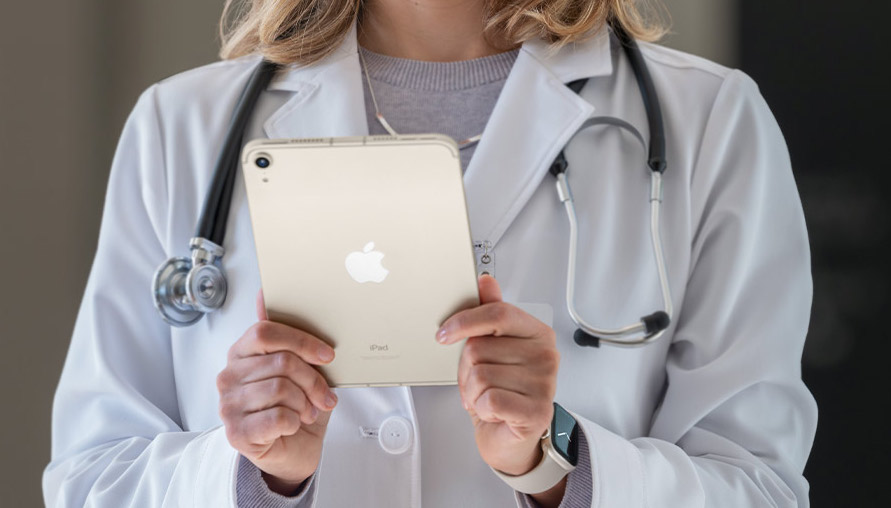Putting its smartwatch front and center, Apple is doubling down on healthcare.
What’s happening: In a 60-page report, the tech giant laid out a two-pronged strategy to become the “center of health” for both consumers and doctors.
Personalizing Consumer Health
Putting consumers in the “driver’s seat” of their own health journey, Apple highlighted four key pillars, including data security, improved health outcomes, developer tools, and new Apple Watch sensors.
Reupping on CEO Tim Cook’s lofty health manifesto, COO Jeff Williams committed to “science-based technology that equips people with even more information and acts as an intelligent guardian for their health.”
Apple Watch. A clear focal point, the Apple Watch continues to layer in next-gen biometric sensors. While noninvasive glucose and blood pressure monitoring are still in development, the new WatchOS9 (due this September) adds fever alert and improved Workout, Medication, and Sleep features.
Health App. With the addition of movement health and period tracking, the Health app for iOS and Watch now aggregates 150+ types of data across 17 health categories.
HealthKit. 10K+ third-party apps in the App Store use the HealthKit API, leveraging the growing data set from the iPhone and Watch for personalized health and fitness experiences.
Fitness & beyond. Meanwhile, Apple has been bulking up its Fitness+ platform, adding exercise styles, audio-guided experiences for Watch, and FaceTime-enabled group workouts.
Rxing the Ecosystem
Apple’s second prong is often less publicized but could be more impactful, driving healthcare collaboration through clinical research, recordkeeping, and large-scale public health initiatives.
ResearchKit. Advancing studies across heart health, women’s health, and mental health, the ResearchKit framework helps the likes of Harvard’s Chan School of Public Health, American Heart Association, and the WHO recruit study participants from a large user base of iPhone and Apple Watch users.
Health Records. Scaling to 12K locations from 800+ healthcare institutions, the Health Records feature of the Health app allows users and their care teams to interface and share comprehensive (and encrypted) data.
Government & public health. Getting more people moving, the Apple Watch is central to 55 sweat-to-save wellness programs running in 17 countries with over a million users. Contracted by local governments, Apple develops apps and push notifications for COVID screening and advisories.
Looking Ahead
With more than 1B active iPhones and 100M Apple Watches in the world, the company’s reach alone makes its healthcare efforts noteworthy. But, as its ecosystem grows, Apple will have to prove that its clinically approved features go beyond consumer-focused wellness apps to transform diagnostics and treatments in the medical realm.
 Apple
Apple


